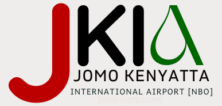Visitors intending to reach the official website should visit kaa.go.ke
Exporting cargo from Jomo Kenyatta International Airport (JKIA) can seem complex, but with the right contacts and clear steps, the process becomes much easier. Here’s a step-by-step guide for exporting goods from JKIA, starting with knowing the key cargo handlers and operators and moving through the actual process.
Step 1: Know the Key Cargo Operators at JKIA
JKIA hosts several cargo handling companies, each providing specialized services for exports and imports. It’s essential to identify the best operator for your cargo, depending on the nature of your goods.
Key operators include:
- Kenya Airfreight Handling Limited (KAHL): Ideal for exporters dealing in perishables like flowers, fruits, and vegetables. KAHL offers extensive cold storage facilities and a 100,000-tonne cold room capacity.
- Transglobal Cargo Centre: A multi-purpose facility known for handling a range of cargo, including vehicles, perishables, and high-value goods, with state-of-the-art security and bonded warehouse facilities.
- Kenya Airways Cargo: A well-established facility handling both import and export cargo with cold storage capacity for perishables.
- Siginon Freight: Specializes in perishable cargo handling and also has facilities for general cargo and dangerous goods, with direct access to JKIA’s airside.
- Swissport Cargo Complex: Known for consolidation of perishables, security services, and general cargo handling.
Step 2: Prepare Your Cargo for Export
Before exporting cargo, ensure that you meet the necessary documentation and regulatory requirements:
- Proper Packaging: Depending on the type of goods (e.g., perishable, dangerous, or high-value items), your cargo must be properly packaged and labeled.
- Cold Chain Requirements: For perishable items such as flowers, fruits, vegetables, or meat, ensure that your cargo is properly stored at appropriate temperatures to maintain freshness. Cold rooms are available at KAHL, Kenya Airways Cargo, and Swissport for this purpose.
Step 3: Engage a Clearing and Forwarding Agent
To facilitate the export process, you’ll need a clearing and forwarding agent who will handle documentation, customs clearance, and logistics. Some of the prominent agents at JKIA include:
- Siginon Freight
- SDV Transami
- Freight In Time
- Kuehne & Nagel
- Schenker International
These agents will help ensure your cargo complies with customs regulations and is processed through the appropriate channels.
Step 4: Submit Necessary Export Documentation
Ensure that the required documentation is in place:
- Commercial Invoice
- Airway Bill
- Packing List
- Certificate of Origin (if applicable)
- Phytosanitary Certificate (for agricultural products)
For live animals or wildlife, special documentation such as CITES permits and health certificates will be needed.
Step 5: Book Your Cargo with a Carrier
Choose a cargo airline that serves your desired export destination. Major cargo carriers at JKIA include:
- Kenya Airways Cargo
- Air France/KLM
- Emirates SkyCargo
- Lufthansa Cargo
- Qatar Airways Cargo
- Ethiopian Airlines
These airlines offer belly cargo services for passenger aircraft and freighter services. Your clearing agent can assist in booking space on the appropriate airline.
Step 6: Cargo Handling and Security Screening
Once your cargo is packed and documentation is in order, it will be transported to one of the cargo terminals for inspection, handling, and security checks:
- Ramp Handling: Companies like Swissport and Kenya Airways Cargo will handle the loading and offloading of cargo, physical checks, and securing it for air transport.
- Security Screening: All cargo is screened for security purposes using X-ray machines and metal detectors to ensure compliance with safety regulations.
Step 7: Customs Clearance and Cargo Release
Before the cargo is loaded onto the aircraft, customs clearance is required:
- Your clearing agent will liaise with Kenya Revenue Authority (KRA) and relevant government authorities to ensure all duties, taxes, and documentation are in order.
- Once cleared, the cargo is released for shipment and loaded onto the aircraft.
Step 8: Track Your Shipment
Most cargo operators and airlines offer real-time tracking services through online platforms. Make sure to get your Air Waybill number, which will allow you to monitor your shipment’s status as it reaches its destination.
Key Contacts for Cargo Handling at JKIA
- Kenya Airfreight Handling Limited (KAHL)
- Location: JKIA
- Tel: +254 (020) 827069
- Email: info@kahl.co.ke
- Transglobal Cargo Centre
- Location: JKIA Freight Terminal
- Tel: +254 (020) 827108
- Email: info@transglobal.co.ke
- Kenya Airways Cargo
- Location: JKIA Freight Area
- Tel: +254 (020) 3274747
- Email: kqcargo@kenya-airways.com
- Siginon Freight
- Location: JKIA Cargo Centre
- Tel: +254 (0) 722 205 004
- Email: aviation@siginon.com
- Swissport Cargo Complex
- Location: JKIA
- Tel: +254 (020) 827128
Conclusion
Exporting cargo from JKIA involves several steps, from identifying the right cargo handling operators and engaging clearing agents to preparing documentation and booking with a suitable carrier. JKIA offers a range of cargo handling facilities, cold chain solutions, and security measures to ensure smooth and efficient exports. Whether you’re exporting perishables or high-value goods, understanding the logistics and working with the right partners is key to success.
